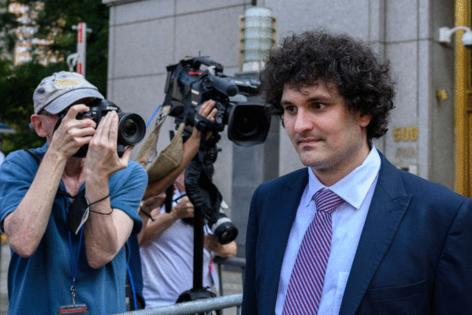Michael Hiltzik: The legal system is closing in on crypto, and things may only get worse
Published in Business News
Forget what T.S. Eliot said about April. For the crypto community and its related scamsters, the cruelest month was March.
That month saw a string of jury verdicts and judicial rulings that laid bare the dark underside of cryptocurrency trading, reinforcing its reputation as a haven for fraud and other illegality. The terrain hasn't proved any more inviting in April thus far, as regulatory investigations and judicial rulings continue to rock the asset class and its promoters back on their heels.
From the standpoint of ordinary investors and the economy as a whole, this is all good. As I've written before, the value of crypto tokens, from bitcoin down to the jokiest versions such as dogecoin, is so nebulous that they lend themselves to schemes aimed at separating unwary or gullible investors from their (real) money.
The value of cryptocurrencies can be placed anywhere. They don't produce income like bonds, and their prices can't be pegged to liquid markets like those of public company securities. To this day, no one has ever explained what cryptocurrencies are useful for, other than paying ransom to crooks holding databases or computer systems hostage.
As recently as Monday, Change Healthcare, a medical transactions processor owned by United Health Group, received a second demand for a ransom payable in crypto tokens only weeks after paying a reported $22 million ransom to rescue personal information, including payment data and medical records for thousands of patients.
That hack of Change's database disrupted healthcare claims payments nationwide, even forcing some medical providers to lay off workers or shut down entirely for lack of funds.
The new demand apparently came from a ransomware group that feels it has been cheated by its partners in the first demand, who may have absconded with the original payoff. If there's no honor among thieves, as the adage says, that goes double in crypto. No, not double — squared.
Let's take a look at crypto's March Madness before moving on to April.
The highest-profile blow, of course, was the March 28 sentencing of convicted crypto fraudster Sam Bankman-Fried for his conviction in October on seven fraud counts related to the collapse of his FTX crypto exchange.
Federal Judge Lewis Kaplan sentenced Bankman-Fried to a 25-year prison term and ordered him to forfeit more than $11 billion. Kaplan observed that Bankman-Fried had scarcely expressed remorse for his crimes. Kaplan justified the lengthy term by observing from the bench that otherwise Bankman-Fried would "be in a position to do something very bad in the future, and it's not a trivial risk."
...continued
©2024 Los Angeles Times. Visit at latimes.com. Distributed by Tribune Content Agency, LLC.







Comments